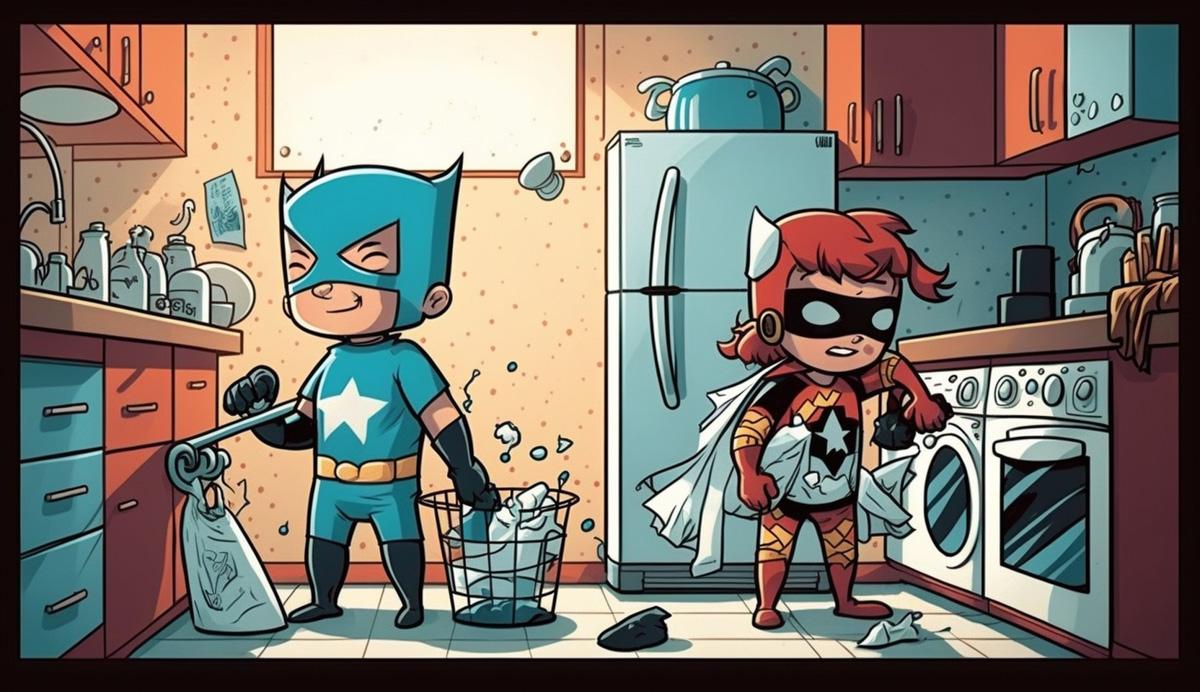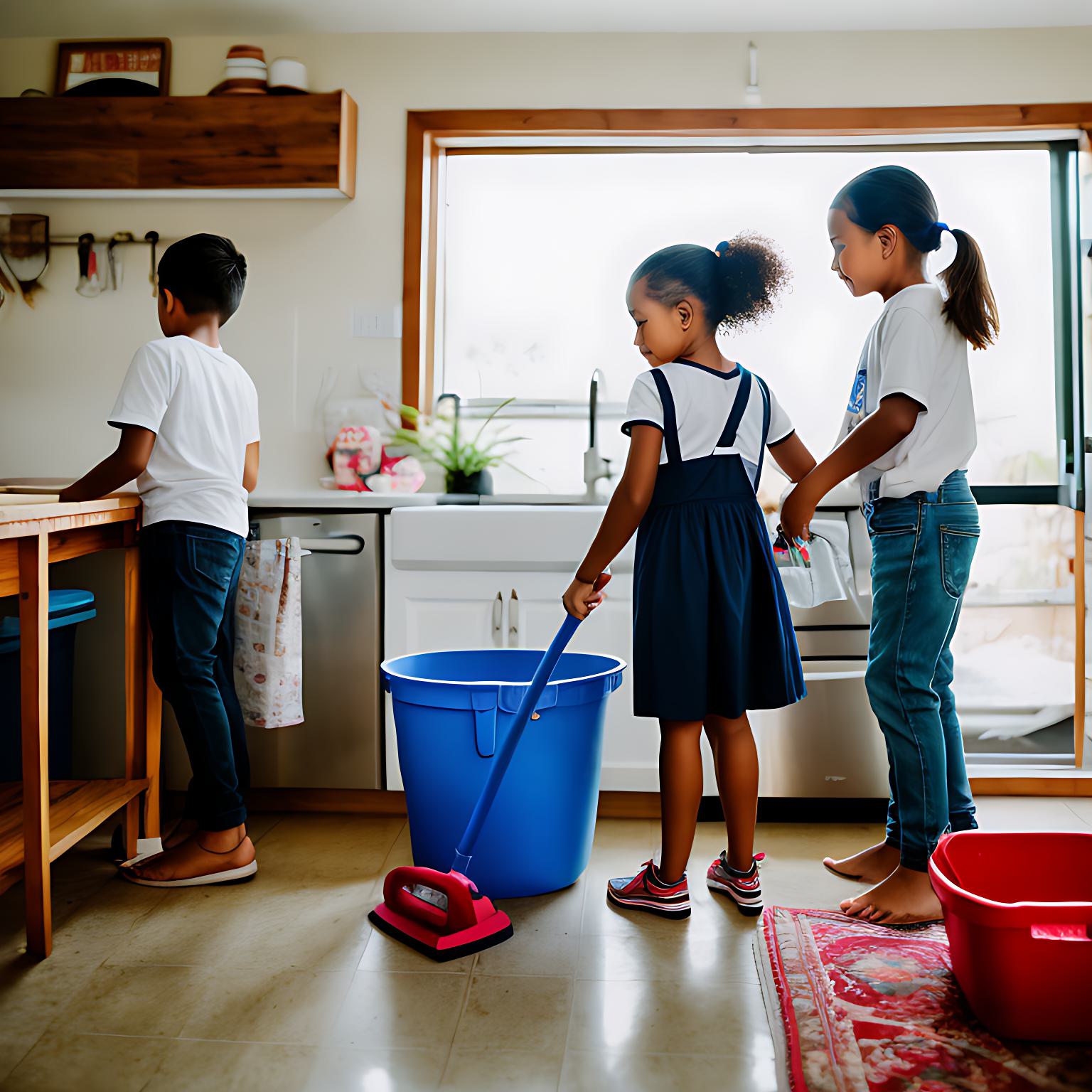Age-appropriate chores kids can help parents with (age 2 to 12)
Age-appropriate chores kids can help parents with (age 2 to 12)

Benefits of teaching kids household chores:
-
Responsibility: By assigning age-appropriate tasks to children, parents are teaching them responsibility. Children learn that they are an important part of the family unit and that they have a role to play in keeping the home running smoothly.
-
Life skills: Chores can teach children essential life skills, such as cooking, cleaning, laundry, and basic home maintenance. These skills will be valuable to them when they move out on their own.
-
Work ethic: Doing chores teaches children the importance of hard work and develops a strong work ethic.
-
Time management: Children learn to manage their time efficiently by setting aside time for their chores and other responsibilities.
-
Teamwork: Chores can bring family members together, teaching children the value of teamwork and cooperation.
-
Self-esteem: Completing tasks and contributing to the household chores can boost children's self-esteem and give them a sense of accomplishment.
-
Independence: By learning how to do household chores, children become more independent and self-sufficient. They learn to take care of themselves and their surroundings.
Having your children help with chores around the house can be a great way to teach them different skills. However, it is important to consider age-appropriate tasks for your children to ensure their safety and success. Here are some age-appropriate chores that kids can help with based on their age.

Age 2-3:
-
Put toys away: At this age, children can be taught to put their toys back in their designated containers.
-
Dusting: Give your child a dusting cloth and let them help dust low surfaces like shelves and table legs.
-
Unloading the Dishwasher: Children at this age can help to take out the clean dishes from the dishwasher and place them on the counters.
Age 4-5:
-
Making the bed: At this age, children can start practicing making their bed. It may not be perfect, but they can always improve over time.
-
Feeding pets: If you have a pet, your child can help with feeding and watering them.
-
Sweeping: Sweep up the kitchen or living area with a small broom and dustpan.
Age 6-8:
-
Folding laundry: Children at this age can help with folding laundry. Teach them to sort piles by size, family member, and color.
-
Vacuuming: Show your child how to operate the vacuum and let them help you clean floors.
-
Watering plants: If you have indoor plants, your child can help with watering and caring for them.
Age 9-12:
-
Bathroom cleaning: Older children can help clean the bathroom sink, toilet bowl, and shower area.
-
Cooking dinner: Teach your child how to make simple dishes like pasta or grilled sandwiches.
-
Mowing the lawn: Depending on the size of your lawn, children at this age can start helping with mowing the lawn.
In addition to assigning age-appropriate chores to your children, make sure to supervise and give them proper instructions on how to complete the task. Show your child how to perform each chore correctly and ensure that they understand the safety precautions. Also, remember to keep instructions clear and concise to avoid confusion.

What to Avoid When Making Chore Lists for kids
When making chore lists for kids, there are certain things that you should avoid. Here are some common pitfalls to avoid:
-
Giving Too Many Chores: Don't overload your child with too many chores. Start with one or two tasks that are appropriate for their age and ability.
-
Being Overly Strict: It's important to set expectations and follow through with consequences, but being overly strict or harsh can lead to resentment and defiance.
-
Not Considering Age and Ability: Make sure the chores you assign are appropriate for your child's age and ability. Tasks should be challenging but not impossible.
-
Focusing Only on Housework: While it's important for kids to help with housework, it's also important to assign chores that contribute to their personal development and growth.
-
Forgetting to Praise and Reward: It's important to acknowledge your child's efforts and progress. Give praise and rewards when they complete their chores well or go above and beyond what's expected.
-
Being Inconsistent: Establish a routine and stick to it. Being inconsistent can lead to confusion and frustration for your child.
-
Micromanaging: Once you have assigned a chore to your child, let them take ownership of it. Avoid micromanaging and allow them to complete the task on their own.

It's important to note that children should not be assigned too many chores, especially during the school year, as they need time to relax and complete their school work. Try to assign a small number of chores that can be completed within a reasonable amount of time.
In conclusion, age-appropriate chores for children can provide a great opportunity to teach responsibility, teamwork, and good work ethics. Every child is different, so don't compare them with others. Assigning chores to children can help them feel accomplished and contributing members of the household, and set them up for success in the long run!




